Transatlantic research collaboration creates student travel opportunities
Phantoms of the Past offers a unique opportunity to travel across the Atlantic Ocean, visit the United Kingdom and participate in a transatlantic research project. It was one of the highlights of my time as an undergraduate and I will never forget it!
During Reading Week in February 2019, I travelled to the UK with a group of Huron faculty and students as part of the Phantoms of the Past project. As a fourth year History major, this was an exciting opportunity for me to examine how Canada and the United Kingdom remember and commemorate the histories of transatlantic slavery and anti-slavery through a week-long research trip.
Much like the annual Department of History trip to Oberlin College, exploring the sites of memory offered a unique learning opportunity that could not be replicated in a classroom environment. While any lecture could point out how the city of Bath, England, grew on the back of the transatlantic slave trade, visiting Beckford’s Tower and the homes of slave owners allowed for a firsthand account at how Bath’s colonial past lingers throughout the urban environment.
As the research essay I was completing focused on the transatlantic visual culture of Josiah Henson, I found the differences in how Canada and the United Kingdom remember and commemorate Henson the most striking aspect of the trip. While Henson is visible in Canada’s memory of slavery and anti-slavery, his identity is contested with “Uncle Tom” due to the fact that his slave narrative is believed to have inspired Harriet Beecher Stowe’s Uncle Tom’s Cabin (1852).
However, throughout our travels in England, it was difficult to find any traces of Henson or other black abolitionists, as they did not fit in with the English government’s method of commemoration that focuses on the efforts of the English parliament in ending the slave trade. The closest connection I found was a statue of Uncle Tom and Eva in the M Shed Museum in Bristol, but the item’s description made no mention of Henson or any other black abolitionists. Instead, the description emphasized that the English Parliament abolished the slave trade in 1807 and slavery in 1834, and many members of parliament participated in the abolitionist movement. Even though Henson and other black abolitionists frequently travelled to the United Kingdom to talk about their experience as slaves and their efforts in the abolitionist movement, they have been largely forgotten about in British public memory.
If any student (not just History students—it is an interdisciplinary project with English students!) wishes to examine how the histories of transatlantic slavery and anti-slavery are remembered in the United Kingdom or Canada, I would highly recommend applying next time the Phantoms project runs. It offers a unique opportunity to travel across the Atlantic Ocean, visit the United Kingdom and participate in a transatlantic research project. It was one of the highlights of my time as an undergraduate and I will never forget it!
By: Thomas Lang (History’19)





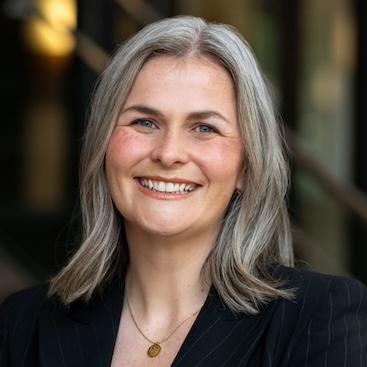
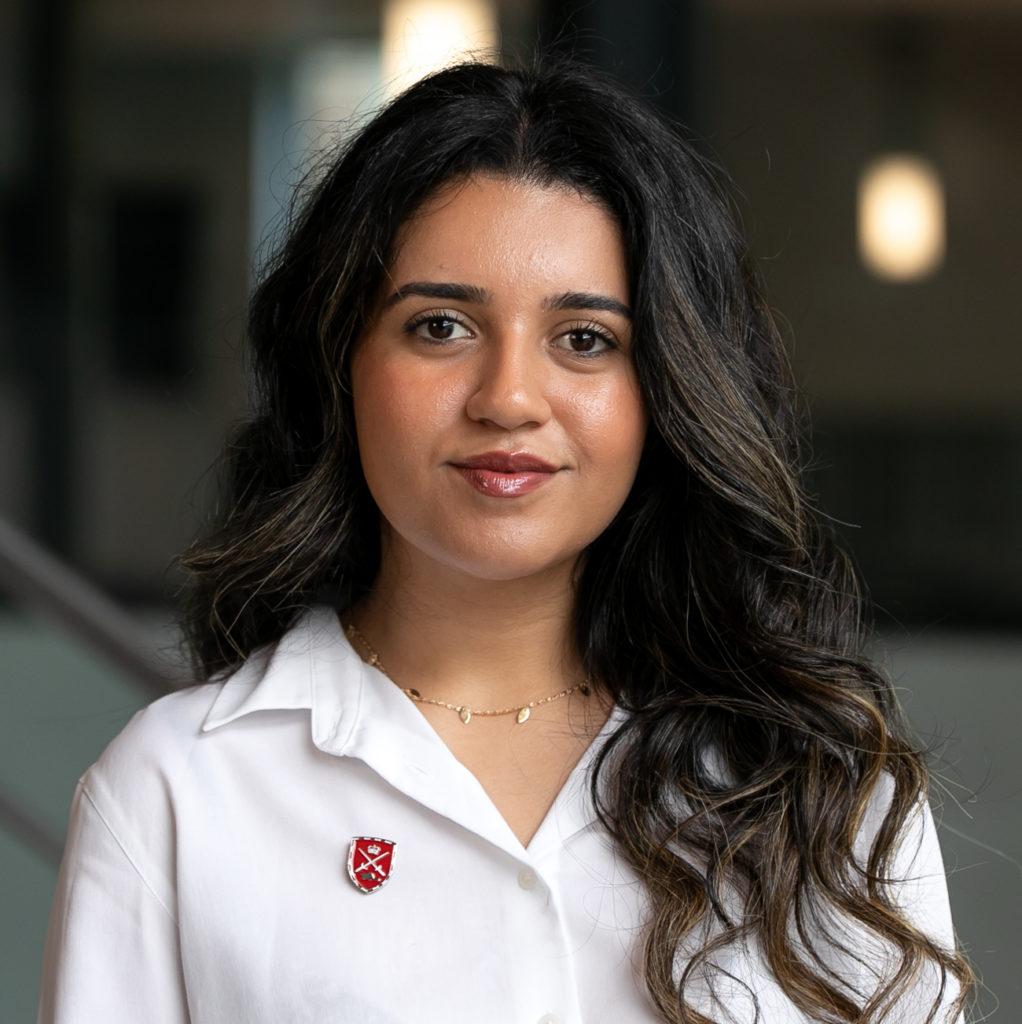
 Lisa Jones Keenan is the Vice President of Sales at Xplornet Communications, the largest rural fixed wireless broadband service provider in Canada.
Lisa Jones Keenan is the Vice President of Sales at Xplornet Communications, the largest rural fixed wireless broadband service provider in Canada. 
 Leigh Allen is the AVP, Global Strategic Research, Reinsurance Group of America Inc., one of the world’s largest global life and reinsurance companies.
Leigh Allen is the AVP, Global Strategic Research, Reinsurance Group of America Inc., one of the world’s largest global life and reinsurance companies. Yola Ventresca is a Managing Partner, Lerners LLP, Secretary of Huron’s Board of Governors and a Huron Class of ’02 alumni. Selected as one of Canada’s “Best Lawyers,” she is passionate about the value of Liberal Arts in helping students succeed in their careers.
Yola Ventresca is a Managing Partner, Lerners LLP, Secretary of Huron’s Board of Governors and a Huron Class of ’02 alumni. Selected as one of Canada’s “Best Lawyers,” she is passionate about the value of Liberal Arts in helping students succeed in their careers.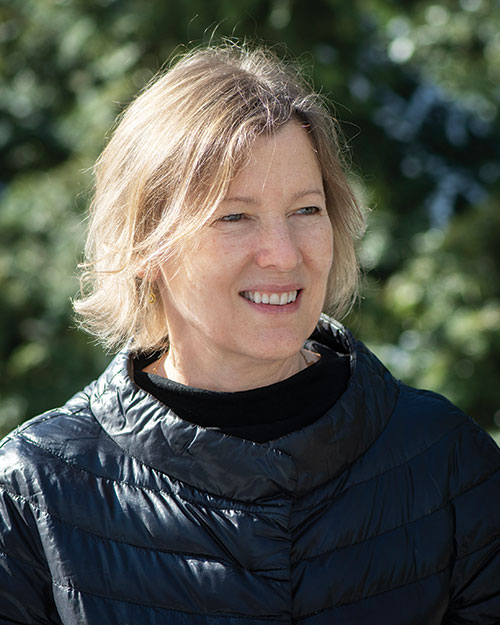 Susan Farrow is an Assistant Professor in The Temerty Faculty of Medicine at the University of Toronto and a Founding Partner and Co-Director of The Toronto Institute of Group Studies, an organization offering certified training and education in group leadership.
Susan Farrow is an Assistant Professor in The Temerty Faculty of Medicine at the University of Toronto and a Founding Partner and Co-Director of The Toronto Institute of Group Studies, an organization offering certified training and education in group leadership. 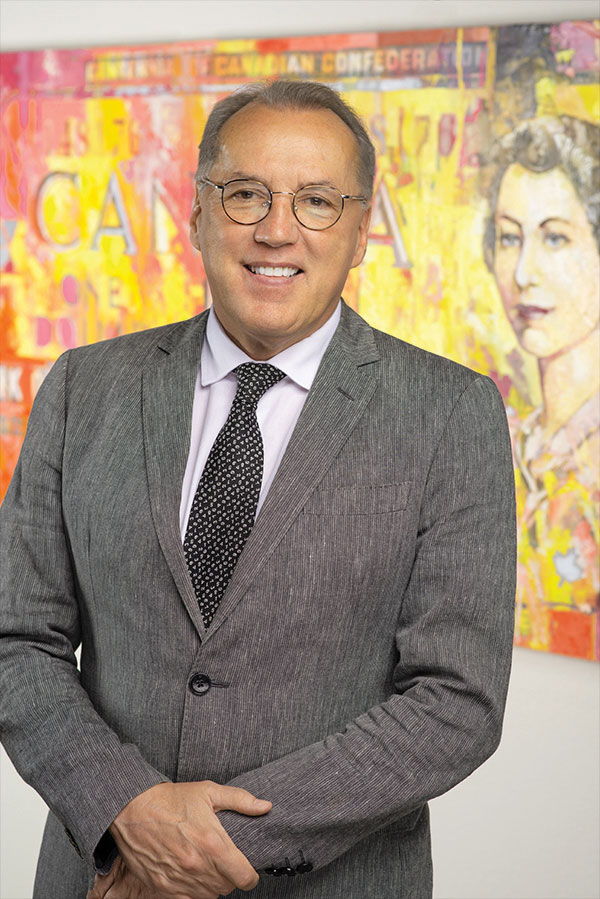 Frank Holmes is CEO and Chief Investment Officer of U.S. Global Investors, as well as a business commentator, philanthropist and Huron Class of ‘78 alumnus. Holmes also serves as the Executive Chairman of HIVE Blockchain Technologies, the first cryptocurrency mining company to go public in 2017.
Frank Holmes is CEO and Chief Investment Officer of U.S. Global Investors, as well as a business commentator, philanthropist and Huron Class of ‘78 alumnus. Holmes also serves as the Executive Chairman of HIVE Blockchain Technologies, the first cryptocurrency mining company to go public in 2017.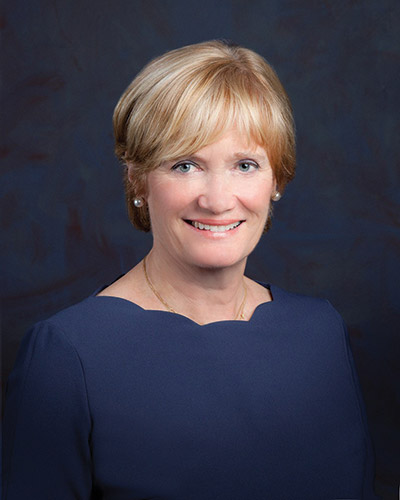 Kelly Meighen is an experienced philanthropist and volunteer. In her role as president of the T.R. Meighen Family Foundation, she has created a legacy of volunteerism and philanthropic giving in the areas of youth mental health advocacy, environmental conservation and cultural vibrancy.
Kelly Meighen is an experienced philanthropist and volunteer. In her role as president of the T.R. Meighen Family Foundation, she has created a legacy of volunteerism and philanthropic giving in the areas of youth mental health advocacy, environmental conservation and cultural vibrancy.  Ranjita is Executive Chair of the Oxford Global Partnership, advising investors, businesses, family offices and entrepreneurs on sustainable, inclusive and responsible value creation. A Business Fellow at Oxford University’s Smith School, Ranjita engages with companies on pursuing value with values, and teaches a postgraduate “Essentials of ESG & DEI” course.
Ranjita is Executive Chair of the Oxford Global Partnership, advising investors, businesses, family offices and entrepreneurs on sustainable, inclusive and responsible value creation. A Business Fellow at Oxford University’s Smith School, Ranjita engages with companies on pursuing value with values, and teaches a postgraduate “Essentials of ESG & DEI” course. Caleb Hayhoe is the Founder & Chairman of Flowerdale Group and a Huron Class of ’85 Alumnus. Flowerdale Group is a Hong Kong based family office with a global investment outlook across public markets, real estate and private investment. Hayhoe previously spent over ten years building a global sourcing business together with an exceptional team, and remains committed to entrepreneurialism and helping great ideas become sustainable companies.
Caleb Hayhoe is the Founder & Chairman of Flowerdale Group and a Huron Class of ’85 Alumnus. Flowerdale Group is a Hong Kong based family office with a global investment outlook across public markets, real estate and private investment. Hayhoe previously spent over ten years building a global sourcing business together with an exceptional team, and remains committed to entrepreneurialism and helping great ideas become sustainable companies.



